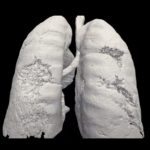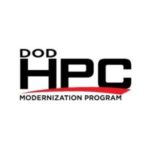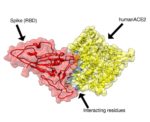Researchers are using TACC supercomputers to power the Galaxy Bioinformatics Platform for COVID-19 analysis. More than 30,000 biomedical researchers run approximately 500,000 computing jobs a month on the platform. “Since 2013, TACC has powered the data analyses for a large percentage of Galaxy users, allowing researchers to quickly and seamlessly solve tough problems in cases where their personal computer or campus cluster is not sufficient.”
Video: Why Supercomputers Are A Vital Tool In The Fight Against COVID-19
In this video from Forbes, Horst Simon from LBNL describes how supercomputers are being used for coronavirus research. “Computing is stepping up to the fight in other ways too. Some researchers are crowdsourcing computing power to try to better understand the dynamics of the protein and a dataset of 29,000 research papers has been made available to researchers leveraging artificial intelligence and other approaches to help tackle the virus. IBM has launched a global coding challenge that includes a focus on COVID-19 and Amazon has said it will invest $20 million to help speed up coronavirus testing.”
AMD Donates HPC Systems to fight COVID-19
AMD has announced a COVID-19 HPC fund to provide research institutions with computing resources to accelerate medical research on COVID-19 and other diseases. The fund will include an initial donation of $15 million of high-performance systems powered by AMD EPYC CPUs and AMD Radeon Instinct GPUs to key research institutions. “I’m also proud that AMD last week joined the COVID-19 High Performance Computing Consortium,” writes AMD CEO Lisa Su.
SDSC makes Comet Supercomputer available for COVID-19 research
With the U.S. and many other countries working ‘round the clock to mitigate the devastating effects of the COVID-19 disease, SDSC is providing priority access to its high-performance computer systems and other resources to researchers working to develop an effective vaccine in as short a time as possible. “For us, it absolutely crystalizes SDSC’s mission, which is to deliver lasting impact across the greater scientific community by creating innovative end-to-end computational and data solutions to meet the biggest research challenges of our time. That time is here.”
Podcast: AI for Science
In this podcast, the Radio Free HPC team looks at the AI for Science program coming out of Argonne National Laboratory. “This is one of the biggest potential changes in our industry and well worth the investigation. But figuring out where AI fits into the traditional world of research and simulation is a difficult problem. Henry points out that nearly every grant proposal needs to include ‘AI’ in order to get serious consideration.”
Project BreathEasy using Digital Twins of Lungs to Improve COVID-19 Patient Outcomes
OnScale and LEXMA have partnered to create patient-specific digital twins that may accurately predict oxygen and blood flow in a patient’s lungs, helping doctors make critical decisions about ventilator and intubation requirements for COVID-19 patients. Each digital twin is patient-specific and built from a combination of medical images (for example from CT scans and X-rays) and thousands of simulations of lung airflow and blood flow using the LEXMA Moebius fluid dynamics solver running on OnScale’s Cloud Simulation platform.
HPCMP Supports the Fight Against COVID-19
The Department of Defense High Performance Computing Modernization Program (HPCMP) is using its supercomputing resources to support the federal response to the COVID-19 pandemic. “For the High-Performance Computing COVID-19 Consortium, the HPCMP offers access and technical expert support for the program’s open research system, a Cray supercomputer with 15,000 cores. The platform is set up outside of the sensitive “official use only” environment and can easily support academics on short notice.”
Flinders University targets COVID-19 vaccine with Oracle Cloud
Australian researchers working with Oracle Cloud and vaccine technology developed by local company Vaxine Pty Ltd are testing a vaccine candidate against the SARS-CoV-2 coronavirus responsible for the COVID-19 pandemic. “The team is headed by Nikolai Petrovsky, Flinders University Professor and Research Director at Vaxine. His team has tapped Oracle for technical collaboration, access to an expanded research community, and cloud infrastructure that helped enable the rapid design of the novel COVID-19 vaccine candidate.”
Supercomputing the spread of the coronavirus in busy indoor spaces
A joint project carried out by four Finnish research organisations has studied the transport and spread of coronavirus through the air. Preliminary results indicate that aerosol particles carrying the virus can remain in the air longer than was originally thought, so it is important to avoid busy public indoor spaces. This also reduces the risk of droplet infection, which remains the main path of transmission for coronavirus.













